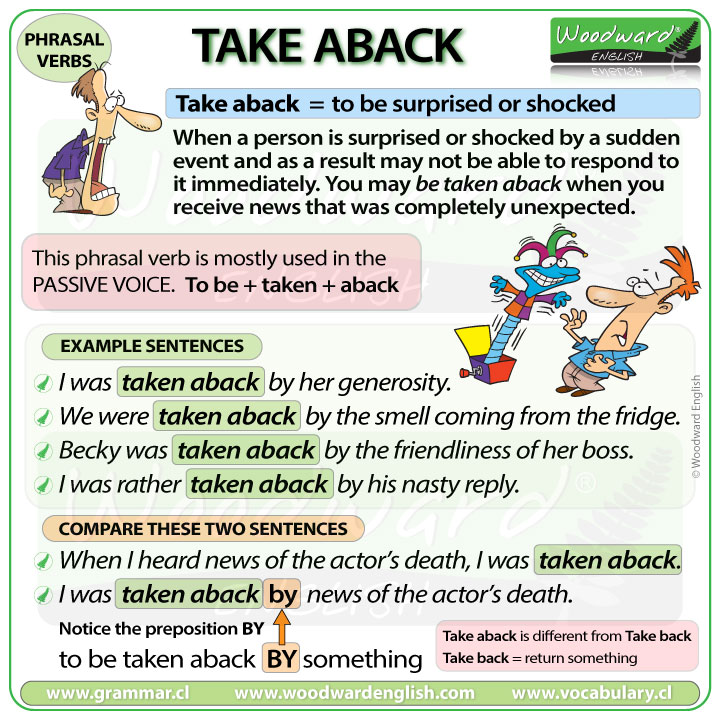The English phrasal verb TAKE ABACK has the following meaning:
1. Take aback = to be surprised or shocked
(transitive) When someone hears or sees something that they were not expecting to hear/see and they are surprised by it. When a person is caught off guard and is surprised or shocked and as a result may not be able to respond to it immediately. The person is startled by a sudden event and doesn’t know how to react for a short while.
This phrasal verb is mostly used in the Passive Voice.
To be + taken + aback
- I was taken aback by her generosity.
- We were taken aback by the smell coming from the fridge.
- Becky was taken aback by the friendliness of her new co-workers.
- I was rather taken aback by his nasty reply.
- I was taken aback by news of the actor’s death.
- She was taken aback by the directness of his question.
Notice how we use the preposition by after this phrasal verb when you mention the thing that surprised you after the it… Take aback by (something).
Compare these two sentences.
- When I heard the news about the actor’s death, I was taken aback.
- I was taken aback by news of the actor’s death.
Taken aback is different from Take back (take back = return something).
Take aback – Summary Chart

